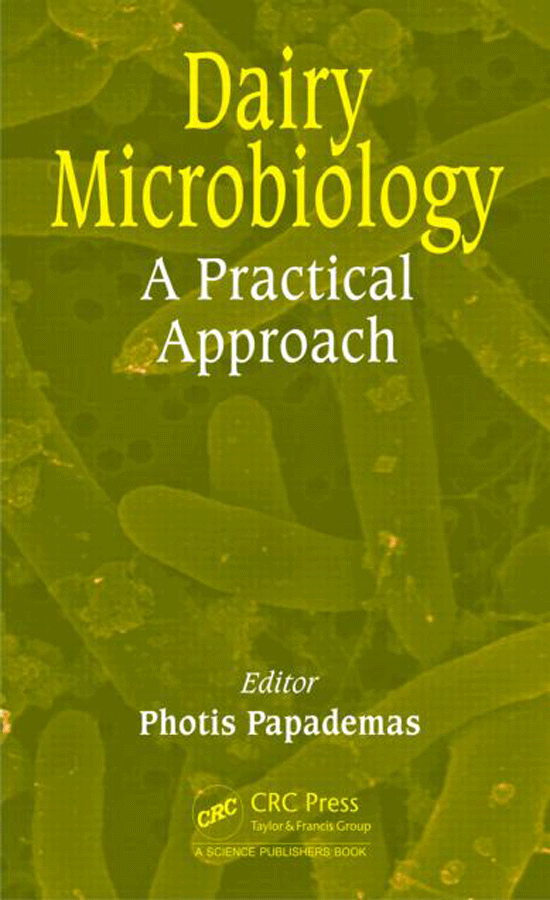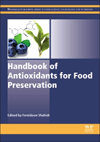Lab Talk: Perception Does Make a Difference
It
happened last week at my sons’ Bitty Basketball All Star games. A mom and I
started talking about food and nutrition, and when she learned what I do, she
pulled out her list of questions. The funny thing was that it probably did not
matter what I said, she had her opinions, and was looking for validation . . .
not for the scientific truth.

It happened last week at my sons’ Bitty Basketball All Star games. A mom and I started talking about food and nutrition, and when she learned what I do, she pulled out her list of questions. The funny thing was that it probably did not matter what I said, she had her opinions, and was looking for validation . . . not for the scientific truth.
She wanted to know what I thought of high-fructose corn syrup. I believe her question was phrased: Is it really as bad as “they” say it is?
First of all, who is “they?” And just how bad do “they” say it is? I told her unless you are willing to try “alternative sweeteners,” including sugar substitutes, sugars are sugars. There are different types of sugars, as well as different sources, but in the end, the body breaks them down into the two most common simple sugars: fructose and glucose.
Brown sugar is sucrose, just like white sugar. Both break down into fructose and glucose. Raw sugar is just less refined than white sugar, but again this does not offer any nutritional value. Honey seems to be more natural because it comes from a bee rather than sugar canes or sugar beets, but upon digestion, honey is nothing more than fructose and glucose.
I told her high-fructose corn syrup is a sweetener made from corn starch. The amounts of fructose and glucose vary by ingredient supplier, but again, to the body, it’s, well, you guessed it: fructose and glucose. At this point I sounded like a broken record. So figured I would tell her about some of the alternatives to fructose and glucose.
 I
started out with the more familiar ones. Sucralose is the most recently
approved sugar substitute and is made from a process that begins with sugar. It
is about 600 times sweeter than sugar and extremely stable, which is why it is
used in so many packaged foods, including dairy foods. Acesulfame-K is 200
times sweeter than sugar and is often used in combination with another sugar
substitute. It, too, does not break down during cooking. Aspartame is 200 times
sweeter than sugar. It contains the two amino acids, phenylalanine and aspartic
acid. Aspartame, however, is not stable at extreme temperatures. And the last
of the FDA-approved sugar substitutes is saccharin. It is 200 times sweeter
than sugar and very stable in foods. Unfortunately, it had received so much
negative press in earlier years that many consumers are saccharin phobics,
including the mom I was talking to, as she quickly informed me.
I
started out with the more familiar ones. Sucralose is the most recently
approved sugar substitute and is made from a process that begins with sugar. It
is about 600 times sweeter than sugar and extremely stable, which is why it is
used in so many packaged foods, including dairy foods. Acesulfame-K is 200
times sweeter than sugar and is often used in combination with another sugar
substitute. It, too, does not break down during cooking. Aspartame is 200 times
sweeter than sugar. It contains the two amino acids, phenylalanine and aspartic
acid. Aspartame, however, is not stable at extreme temperatures. And the last
of the FDA-approved sugar substitutes is saccharin. It is 200 times sweeter
than sugar and very stable in foods. Unfortunately, it had received so much
negative press in earlier years that many consumers are saccharin phobics,
including the mom I was talking to, as she quickly informed me.
I talked about sugar alcohols or polyols. I emphasized how many occur naturally in fruits. She interjected with: I hear they cause bloating, gas and laxation. I promptly responded with an everything-in-moderation comeback. I pointed out that erythritol is recognized by the natural foods community as being an all-natural polyol, unlike many of the others. And, because erythritol is absorbed by the bloodstream before it enters the large intestine, it does not normally cause the undesirables she mentioned.
A glance at the time clock told me I had only a few more minutes to try and get her to think like a food scientist and not a stay-at-home mom who reads way too many articles on rights and wrongs. So, I brought up stevia. This natural alternative sweetener comes from the plant Stevia rebaudiana and has been used as a sweetening ingredient in foods and drinks by South Americans for centuries. There are no reports of any plant toxicity to the consumers.
Stevia has been added to a number of food products in Japan since the mid 1970s. No indications of any significant side effects have yet been reported after more than 20 years of use. Similarly, no reports of any adverse reactions to stevia have been reported in the United States.
Stevia is 300 times sweeter than regular sugar, with minimal aftertaste. Stevia extract has no calories. Stevia extract is suitable for diabetics and those with high blood pressure. Stevia does not cause tooth cavities, it is heat stable and readily blends with other sweeteners.
The stevia story gets even better. Independent researchers’ preliminary scientific studies show stevia may improve the function of cells required for insulin production in the pancreas. It may also improve glucose tolerance in people with diabetes. Unlike any other sweeteners, stevia has been reported to possess anti-viral properties. Preliminary evidence also suggests stevia possesses blood pressure lowering properties and may be a useful treatment for hypertension.
FDA does not allow stevia to be called a “sweetener” and be used as such, since sweeteners are food additives and stevia is not an approved food additive. It must be classified as a “dietary supplement” and the application must call itself a supplement, even if it resembles a food. I told her she can expect to find it in more and more products in the near future. It’s even sold by itself at natural foods stores.
As the buzzer rang, she appeared to be stumped by this news of stevia. When we got up to reclaim our sons, she said: Well, I am still not going to buy anything with high-fructose corn syrup. I sighed.

Donna Berry
It happened last week at my sons’ Bitty Basketball All Star games. A mom and I started talking about food and nutrition, and when she learned what I do, she pulled out her list of questions. The funny thing was that it probably did not matter what I said, she had her opinions, and was looking for validation . . . not for the scientific truth.
She wanted to know what I thought of high-fructose corn syrup. I believe her question was phrased: Is it really as bad as “they” say it is?
First of all, who is “they?” And just how bad do “they” say it is? I told her unless you are willing to try “alternative sweeteners,” including sugar substitutes, sugars are sugars. There are different types of sugars, as well as different sources, but in the end, the body breaks them down into the two most common simple sugars: fructose and glucose.
Brown sugar is sucrose, just like white sugar. Both break down into fructose and glucose. Raw sugar is just less refined than white sugar, but again this does not offer any nutritional value. Honey seems to be more natural because it comes from a bee rather than sugar canes or sugar beets, but upon digestion, honey is nothing more than fructose and glucose.
I told her high-fructose corn syrup is a sweetener made from corn starch. The amounts of fructose and glucose vary by ingredient supplier, but again, to the body, it’s, well, you guessed it: fructose and glucose. At this point I sounded like a broken record. So figured I would tell her about some of the alternatives to fructose and glucose.

I talked about sugar alcohols or polyols. I emphasized how many occur naturally in fruits. She interjected with: I hear they cause bloating, gas and laxation. I promptly responded with an everything-in-moderation comeback. I pointed out that erythritol is recognized by the natural foods community as being an all-natural polyol, unlike many of the others. And, because erythritol is absorbed by the bloodstream before it enters the large intestine, it does not normally cause the undesirables she mentioned.
A glance at the time clock told me I had only a few more minutes to try and get her to think like a food scientist and not a stay-at-home mom who reads way too many articles on rights and wrongs. So, I brought up stevia. This natural alternative sweetener comes from the plant Stevia rebaudiana and has been used as a sweetening ingredient in foods and drinks by South Americans for centuries. There are no reports of any plant toxicity to the consumers.
Stevia has been added to a number of food products in Japan since the mid 1970s. No indications of any significant side effects have yet been reported after more than 20 years of use. Similarly, no reports of any adverse reactions to stevia have been reported in the United States.
Stevia is 300 times sweeter than regular sugar, with minimal aftertaste. Stevia extract has no calories. Stevia extract is suitable for diabetics and those with high blood pressure. Stevia does not cause tooth cavities, it is heat stable and readily blends with other sweeteners.
The stevia story gets even better. Independent researchers’ preliminary scientific studies show stevia may improve the function of cells required for insulin production in the pancreas. It may also improve glucose tolerance in people with diabetes. Unlike any other sweeteners, stevia has been reported to possess anti-viral properties. Preliminary evidence also suggests stevia possesses blood pressure lowering properties and may be a useful treatment for hypertension.
FDA does not allow stevia to be called a “sweetener” and be used as such, since sweeteners are food additives and stevia is not an approved food additive. It must be classified as a “dietary supplement” and the application must call itself a supplement, even if it resembles a food. I told her she can expect to find it in more and more products in the near future. It’s even sold by itself at natural foods stores.
As the buzzer rang, she appeared to be stumped by this news of stevia. When we got up to reclaim our sons, she said: Well, I am still not going to buy anything with high-fructose corn syrup. I sighed.
Looking for a reprint of this article?
From high-res PDFs to custom plaques, order your copy today!




